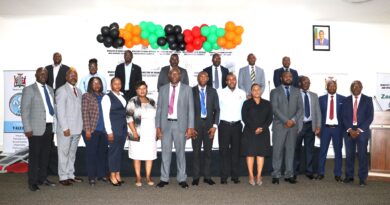Community Action Against Corruption Urges Reevaluation of Anti-Corruption Approach in Zambia
In a significant statement issued on the 8th of November 2023, Community Action Against Corruption (CAAC) has called upon Zambia’s Anti Corruption Commission (ACC) to reconsider its pursuit of asset forfeiture against Faith Musonda, a figure under investigation for allegedly possessing assets suspected to be proceeds of crime.
CAAC expressed strong reservations about the ACC’s application to the Financial and Economic Crimes Court, advocating instead for a full and transparent legal process for Faith Musonda.
The organization emphasized the importance of allowing the court to determine her guilt or innocence before the forfeiture of any assets is considered.
CAAC cautioned against what they perceive as a softer approach to combating corruption through non-conviction-based asset forfeiture.
They warned of potential legal repercussions in the event of a change in government, as individuals whose assets were seized might challenge the state, alleging wrongful seizure without a thorough court process.
Brightone Tembo, CEO of CAAC, further highlighted the need to review Article 80 of the Anti Corruption Act of 2012.
This article, allowing individuals to be absolved after disclosing their assets, was criticized by CAAC due to the perceived lack of a robust system for auditing people’s assets.
Mr. Tembo pointed to past instances, including the case of Faith Musonda, where individuals were released under this provision, despite doubts about the accuracy of their asset disclosures.
He stated that the concern is that Zambia lacks a proper system for auditing people’s assets, making the full disclosure provision unreliable.
This was evident in the case of Faith Musonda’s initial arrest, where she was released based on the flawed Article 80 of the Anti Corruption Act.
CAAC’s appeal brings into focus the complexities and potential loopholes in the anti-corruption framework, urging a reevaluation of approaches to ensure a more stringent and just legal process in cases involving alleged corruption.



